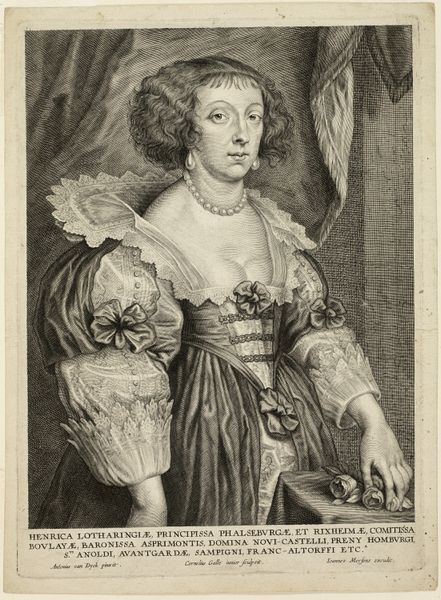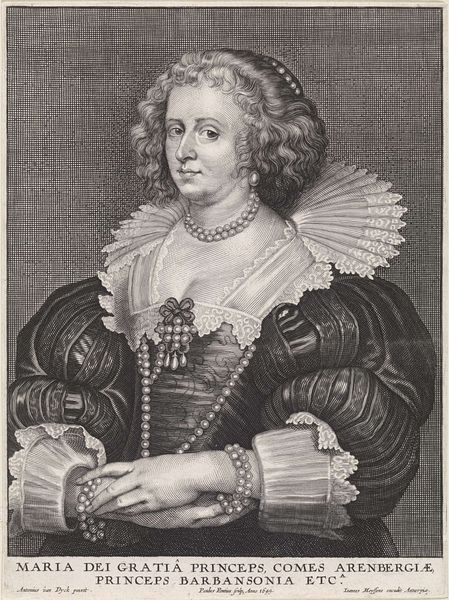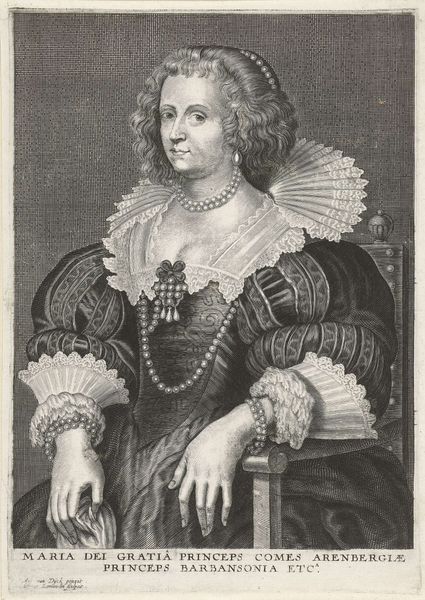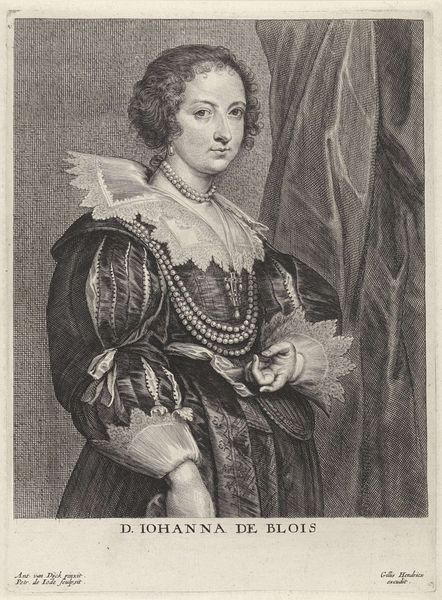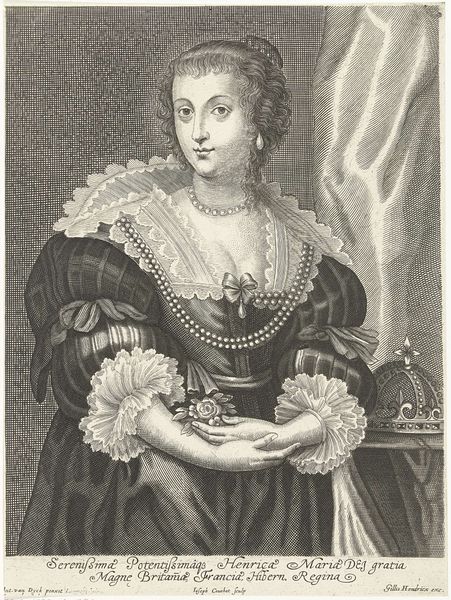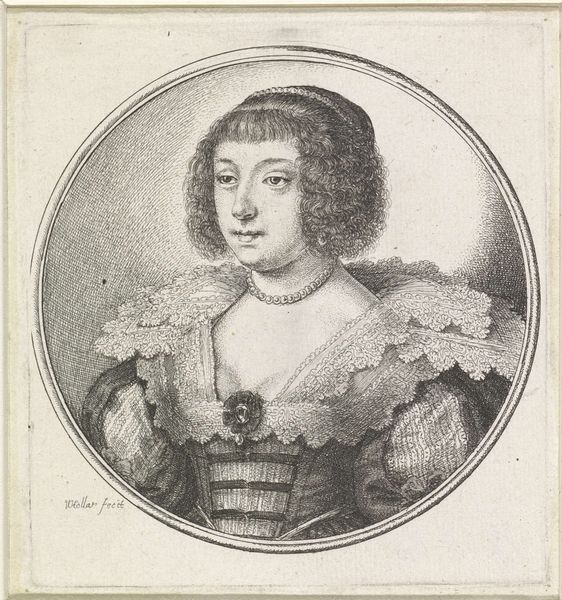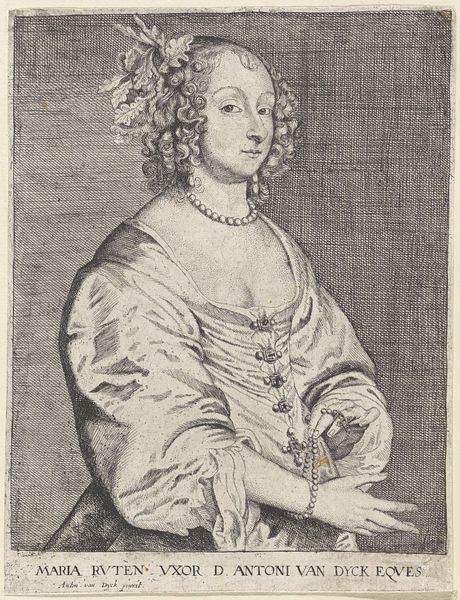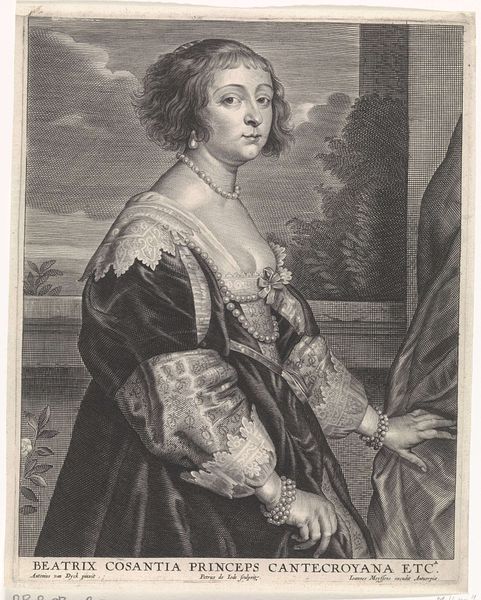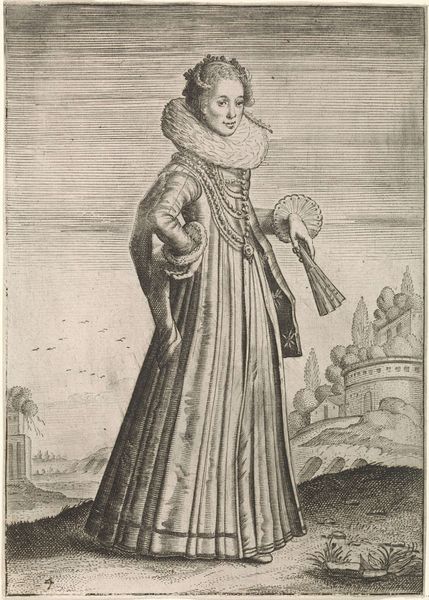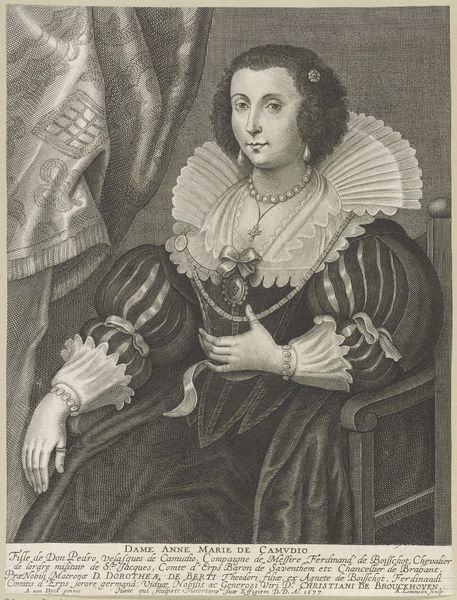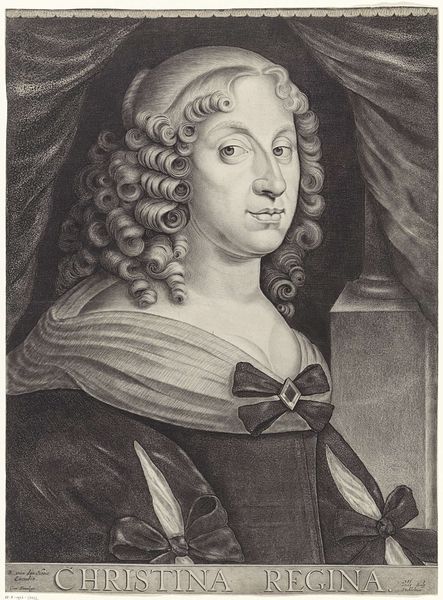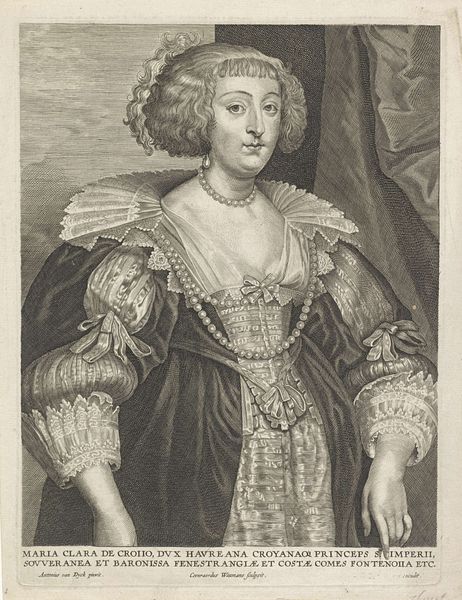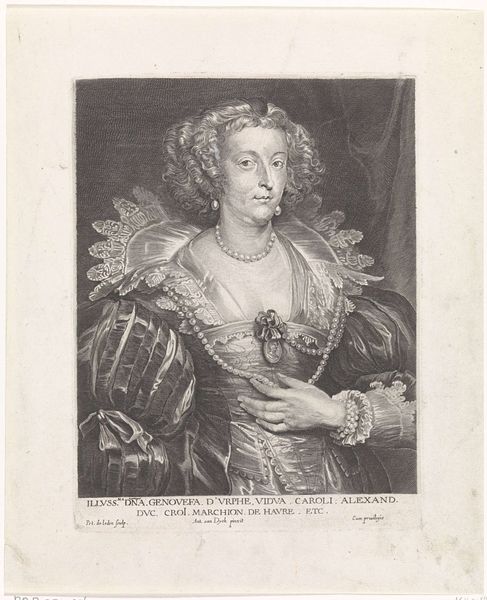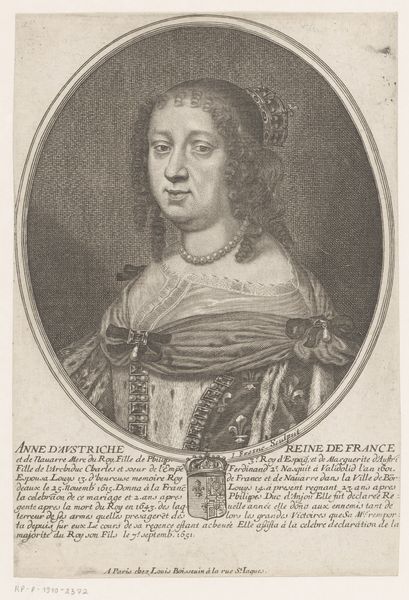
#
pencil drawn
#
facial expression drawing
#
wedding photograph
#
photo restoration
#
pencil sketch
#
old engraving style
#
portrait reference
#
pencil drawing
#
19th century
#
portrait drawing
Dimensions: height 256 mm, width 183 mm
Copyright: Rijks Museum: Open Domain
Curator: Let's turn our attention to this rather compelling portrait. Entitled "Portret van Anna Wake," and rendered somewhere between 1639 and 1670, this piece is attributed to Petrus Clouwet. The technique, as evidenced by the linear precision, points toward engraving. Editor: The intricacy immediately strikes me. Beyond mere depiction, it seems laden with status and speaks volumes about the material wealth of the sitter. What stands out is the dress, lace, jewelry, and that delicate fan - instruments of high-class presentation and taste! Curator: Precisely. Structurally, we see a masterful use of chiaroscuro. The stark contrast amplifies depth, lending dynamism to an otherwise static composition. The use of line dictates the subtle curvature of her garments, defining contours and emphasizing their opulence. Note the symmetry in her jewelry and in her garment patterns; all contributing to the impression of equilibrium and measured display. Editor: I agree. Speaking materially, the dress's large puff sleeves seem specifically crafted from rich materials, undoubtedly constructed with the specific aim of showcasing luxury. It really raises questions about the labor required for this level of ornamental elaboration and its connection to systems of social power. Where were these textiles sourced, who worked on producing them and what does Anna’s attire tell us about patterns of global trade at the time? Curator: I see your point regarding the implications behind Anna's sartorial presentation. One can't dismiss the semiotic role the jewelry plays: its function, signalling virtue, affluence, familial bonds, and all sorts of affiliations. A perfect articulation of identity performed through fashion! Editor: Indeed. When we delve into it, we can note how things as ephemeral as a style actually are indexes that reveal a complete picture of the historic, societal organization where each person has a different position in labor systems! Curator: Fascinating how visual composition allows for multiple avenues of interpretation, and we get these layered meanings from close readings. Editor: Yes, even in black and white. Recognizing those textures offers a portal toward tangible insights!
Comments
No comments
Be the first to comment and join the conversation on the ultimate creative platform.
